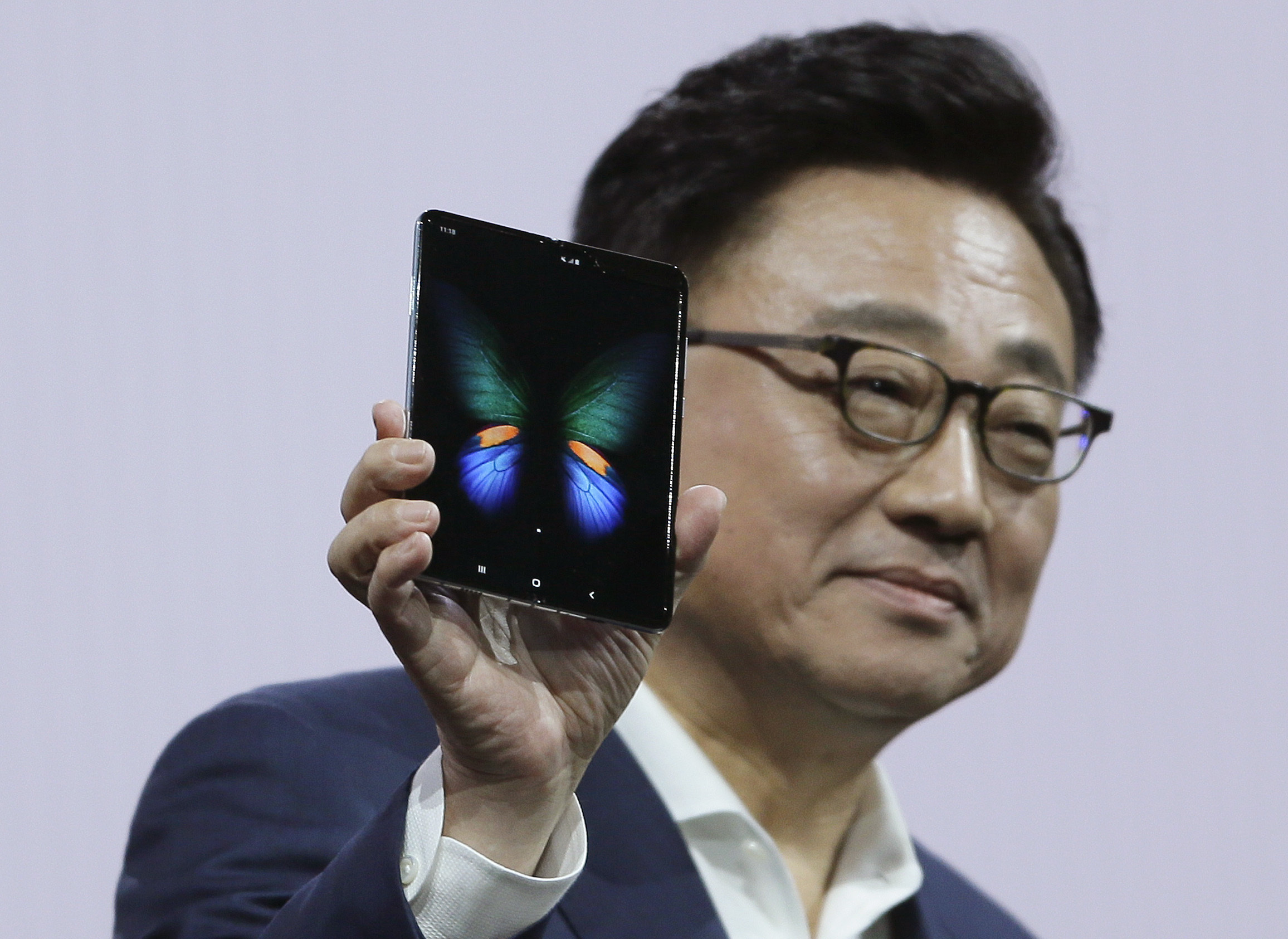- If foldable smartphones become popular after Samsung’s Galaxy Fold launch, Apple may struggle to keep up with Samsung, according to a new analyst note from Goldman Sachs.
- But the fact that Samsung has not allowed anyone to examine or use the Galaxy Fold could mean it’s not ready yet.
- Apple relies on Samsung to produce the displays for its high-end iPhones.
Apple and Samsung may offer similar features when it comes to their flagship smartphones – both the latest iPhones and Galaxy phones include edge-to-edge displays and facial recognition, for example. But when it comes to foldable phones, Samsung will hold a significant lead in the near term, according to a team of Goldman Sachs analysts led by Rod Hall.
In a note published on February 20, the firm called Samsung’s newly introduced $1,980 Galaxy Fold “the main potential challenge” for Apple in the ultra-high-end smartphone market. “In terms of competition for Apple we see the Fold as the main potential challenge in the ultra high-end with a compelling form factor that only Samsung’s foldable OLED technology can deliver in our opinion,” the note said.
Samsung on Wednesday unveiled its highly anticipated foldable phone along with its new Galaxy S10 lineup and wearable devices. The Galaxy Fold, which launches on April 26, is a smartphone with a 4.6-inch screen that unfolds to become a 7.3-inch tablet. Samsung demonstrated how this extra screen real estate could be used by showcasing the Fold’s ability to display three apps simultaneously. The electronics maker also showed how apps running on the Fold will be able to transition between phone and tablet mode.

Although Samsung demonstrated the device on stage, it did not allow media attendees to try the Fold after the event, which Goldman also flagged as a cause for concern.
But if Samsung's new foldable form factor does prove to be a hit, Goldman believes it may postpone Apple from accessing the necessary display technology for use in its iPhones. "We see this as challenging for Apple who could find themselves with no access to the critical flexible OLED technology for which we believe Samsung has at least a two year lead over other display competitors," the note said.
Apple relies on Samsung to supply the OLED displays it uses for high-end iPhones, such as the iPhone XS and iPhone XS Max. The company is said to be making an effort to reduce its dependence on Samsung and has reportedly begun working with LG to supply smartphone displays, according to Bloomberg. Apple is expected to release three new iPhones this fall, The Wall Street Journal reported, including a successor to the lower-priced iPhone XR.
Goldman's 12-month $140 price target for Apple remained unchanged.

